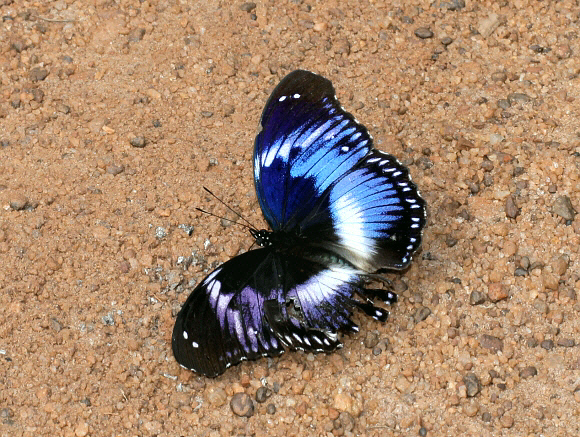
Introduction
The genus Hypolimnas comprises of 29 species worldwide including 15 in the Afrotropical region, of which 7 occur in West Africa. All are palatable to birds, but some such as misippus, aubergeri and dinarcha have evolved colours and patterns that mimic unpalatable Danaines or Acraeines, so they are able to fool birds into leaving them alone.
The butterflies in this genus are popularly known as Egg-flies because of the remarkable behaviour of two Asian species – anomala and antilope, which stand guard over their egg batches, protecting them from attack by parasitoid wasps. The females remain in position for several days, guarding their eggs until they hatch, and usually die in situ.
Hypolimnas salmacis is a widely distributed species, being found across most of sub-Saharan Africa from Sierra Leone to Sudan and Ethiopia, and south as far as Congo, Uganda and n.w. Tanzania.
Habitats
This species is found mainly in open or degraded forest, but also occurs in riverine forest habitats and in dense savannah.
Lifecycle
The larval foodplants are Fleurya and Urera (Urticaceae).
Adult behaviour
Males habitually perch with wings half-open on bushes or saplings along the edges of forest roads, to await passing females. Occasionally they descend to imbibe moisture from damp ground, and at these times they nervously flit from spot to spot.
